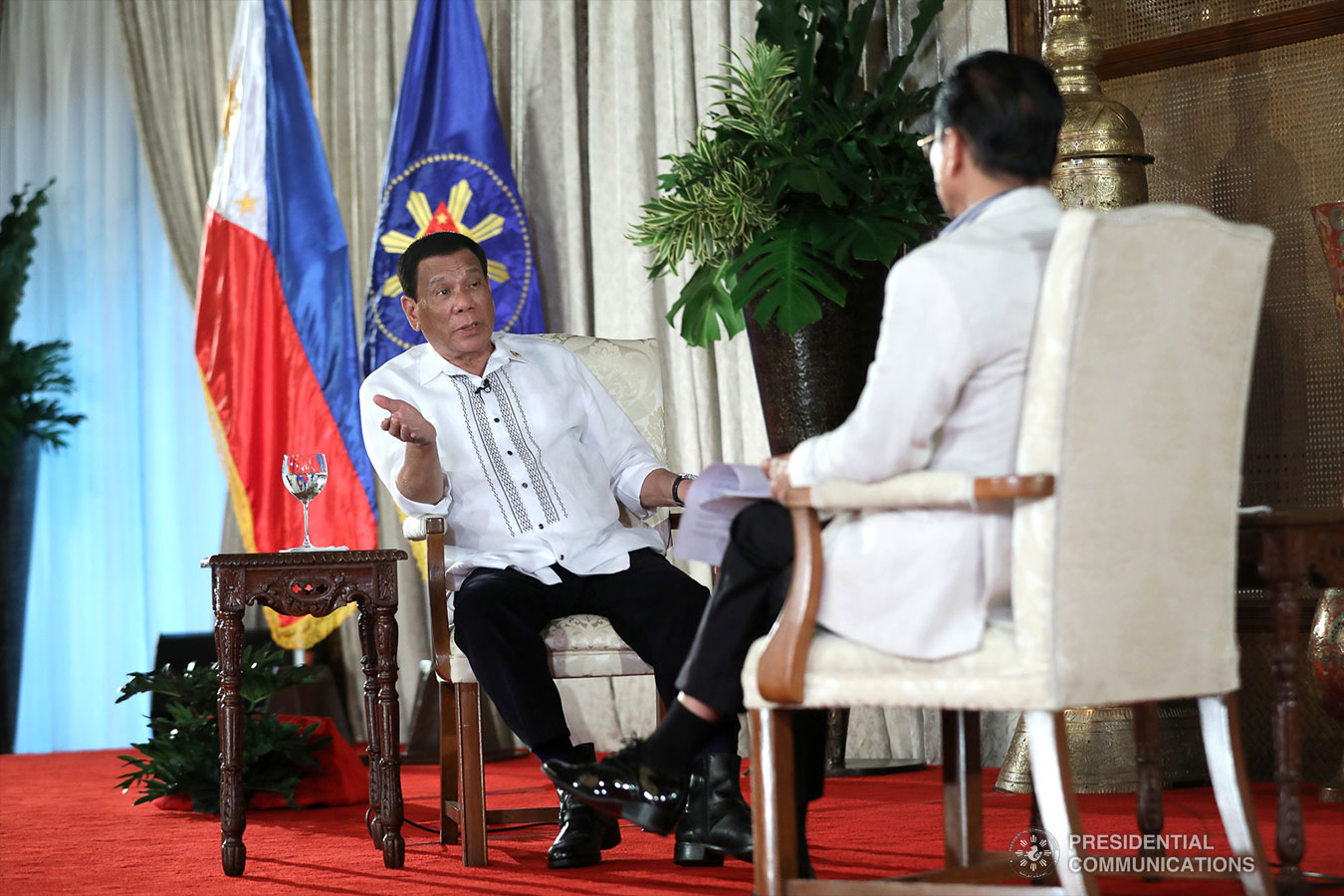
MALACAÑANG — President Rodrigo Roa Duterte on Tuesday, September 11, clarified that the decision to revoke Senator Antonio Trillanes IV’s amnesty was due to constitutional mandate and not political.
In an interview with Chief Presidential Legal Counsel Salvador Panelo, President Duterte explained that the Aquino administration erred in granting the former rebel soldier an amnesty because the process then had legal loopholes. “May nakita kasi si SolGen Calida na mali. Eh pagka mali, mali is mali. Hindi mo talaga ma-correct ‘yan,” he said.
“And one of the glaring mistakes of the Aquino administration was to extend an amnesty. But the procedure was totally wrong in the sense that he just issued the proclamation, no particular names…it was a motherhood statement to cover the individual and any of the acts of the mutineers,” he added.
The Chief Executive reinforced that granting amnesty is an exclusive power of the President but, in the case of Senator Trillanes, it was then Defense Secretary Voltaire Gazmin who signed his amnesty.
“An act of amnesty is always an act of state which cannot be done by a mere Cabinet member, especially if that Cabinet member was the one or was one of those who investigated and made the recommendation and approved the recommendation himself,” President Duterte expounded.
Also, during the interview, President Duterte, denied that he is more focused on silencing his critics than addressing the country’s pressing concerns.
“I have yet to sign anything ordering the arrest or the silencing of anybody in this government, especially the critics,” he said.
“The fact that they are doing it every day only goes to show that I am giving them the time of their lives to just talk and talk and talk. Wala naman… It’s an invented phrase kasi ‘yang ‘silencing,’” he added.
President Duterte’s Promise: Peace in Mindanao
During the two-hour interview, President Duterte tackled several issues that the country is currently facing and the measures the government has been exhausting to address these problems.
Toward the end of the discussion, President Duterte reiterated that despite such political havoc, he has been consistent in fulfilling the promise he made to the Filipinos, which is to combat drugs, end corruption in the government, and pursue peace and order in Mindanao.
The President stated that such law and order in Mindanao was evident since it was placed under Martial Law. “ It had lessened — it has lessened criminality by and large. And the only way to do that is to conduct a survey among the people of Mindanao.”
However, with regards to threats from Islamist extremists, the President said the country still has vulnerabilities.
Asked by Atty. Panelo about the country’s defensive capabilities on the resurgence of ISIS-linked militants, he said, “Well, we are not without limits actually, Sal. We cannot guard even the longest coastline. Eh coastline ‘yan, per island kung bilangin mo ‘yan. So, the Philippines is very porous,” the President explicitly answered.
The Chief Executive also said that the passage of the Bangsamoro Basic Law might not be the entire solution to attain long-lasting peace in Mindanao, but it will at least contribute to ending some mayhem that the Mindanaoans are enduring for years.
“Problem is this Bangsamoro Law must pass because if not, it would again create trouble there. It could be an irritation; it could be anger. It could be a way of just terminating all peace talks and going to war,” President Duterte described.
He then added that if all parties involved would be able to have a considerable agreement, then it is time to create the autonomous region.
“Now, if we can talk to reason, to prevail over everybody, it would be something like we will just all agree and if it is acceptable to the others, we will create the Bangsamoro country and incorporate it in the Constitution as an autonomous region. Maybe just like Hong Kong, China. Give it more leeway,” the President stated. ###PND

